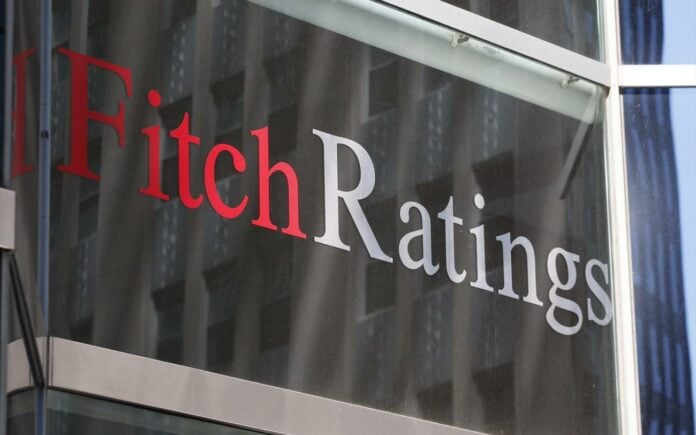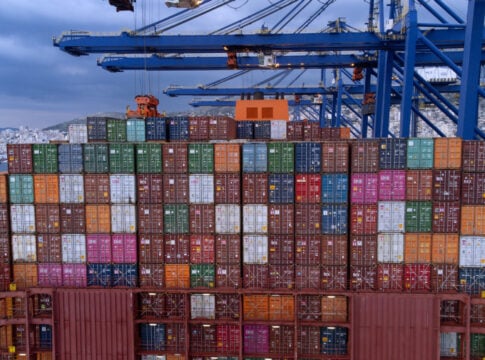Greece is growing, but it is still lagging behind its European partners in terms of investment and income. More specifically, although the economy is currently growing at rates clearly faster than the other eurozone member states, Greece remains close to Bulgaria in terms of purchasing power, while the gap in investments as a percentage of GDP is still large.
Federico Barriga Salazar, Senior Director, Global Sovereigns & Supranationals of Fitch, explained in an interview with “Naftemporiki,” why it will take many more years to catch up with the European average and outlined the conditions for further upgrades of the Greek debt.
He also warned that despite any cuts this year and next year, interest rates will remain at much higher pre – 2022 levels for several more years.
The full interview of Federico Barriga Salazar to Natassa Stasinou follows:

Greece continues to show higher growth rates than most Eurozone countries. However we see many economists lowering their forecast for this year. What is your estimate and what are the main challenges for the Greek economy?
We expect growth in Greece to reach 2.4%, despite a slightly weaker-than expected performance in 2023. The main drivers of growth will be strong investment performance and a pick-up in private consumption. The latter is driven by a combination of lower average inflation (we expect HICP to average 2.6% in 2024) and continued employment growth. The labour market in Greece has surprised us on the upside, with unemployment expected to continue to gradually fall over the next couple of years to levels close to 2007-08.
The main challenges of the Greek economy are similar to many EU countries: ageing in particular, climate change, increasing productivity. They are also specific to the country, including narrowing the investment gap, improving the business environment and tackling some of the still-persistent imbalances on public and external balance sheets.
Greeks have the second to the bottom—just above Bulgaria—purchasing power in the EU according to Eurostat. Can it close the gap with its European peers?
Convergence has started to take place over the last couple of years compared to EU and eurozone averages. However, the gap in income per capita created in the last 15 years following the multiple Greek crisis is large and will take a long time to narrow. Over the next 3-4 years we maintain a relatively solid growth forecast (around 2-2.5%) verus eurozone growth of 0.5-1%, meaning that further convergence will take place. Over the longer term potential growth in Greece is estimated at 1-1.5%, and this will clearly make the task of closing the gap much harder.
Greece has to be now compared in convergence metrics with Central and Eastern European EU member states, where some countries have potential growth of 2-3%, such as Poland and Romania, and when at present there is higher probability of convergence to the EU average.
We also have a persistent investment gap. What should be done to attract more investments?
The investment gap is also partly a result of the long crisis, with Greece having an investment/GDP ratio of around 16%, which is well below the EU average (and also the BBB peers). This is also evidenced in the investment/savings ratio, driving persistent current account deficits. That said, the last years have seen strong investment from both the public and private sector, spearheaded by recovery and resilience funds. This is helping gradually close the investment gap but Greece will need several years of strong inflows to be able to narrow it and there is some uncertainty around what happens beyond 2026 once RRF Funds are spent.
The authorities over the last couple of years have started to put in place reforms to increase private investment, improve business environment, streamline administrative procedures which has led to record levels of foreign direct investment. Further reforms are planned and this could help guarantee higher flows. Importantly, there is some evidence at sectoral level that Greek companies are becoming more competitive and able to take advantage of European value chains (something CEE countries did very effectively over the past decade). This is important as Greece due to the recent decade of adjustment appears competitive on price level but productivity is not high.
Greece has regained investment grade status by most rating agencies. Could it expect further upgrades?
We have identified 2 main areas where there could be positive rating momentum: public finances and macro/growth. On public finances a key consideration remains the level of public debt. We expect debt/GDP to continue falling to around 150% of GDP by 2025 and to around 140% in 2027 but this is still almost 3 times the BBB peer average. The composition of debt is favorable to Greece but in around 10 years time the country will need to start relying much more on capital markets, hence debt sustainability remains crucial. In this context, positive rating action could occur if we see continued commitment to reducing public sector debt over the medium term.
On growth, we could take positive rating action if we have greater confidence that implementation of reforms and investment dynamics would boost medium term growth potential, and make the economy more resilient.
The ECB has hinted that it will start reducing rates in June. How far could it go? Where will see the rates by the end of 2024 and by the end of 2025? How will bonds be impacted?
We maintain an unchanged ECB policy rate forecast of 75bp of cuts by the end of this year, but now expect the first cut at the June meeting. We expect an additional 75bp cut in 2025, meaning that by end-2025 rates will remain significantly higher (at 3%) compared to pre-2022 levels. As many policymakers in Europe have cautioned, the neutral rate of interest rates is possibly higher now, meaning that it is unlikely that we will see a return to the very low level of interest rates over the medium term.














